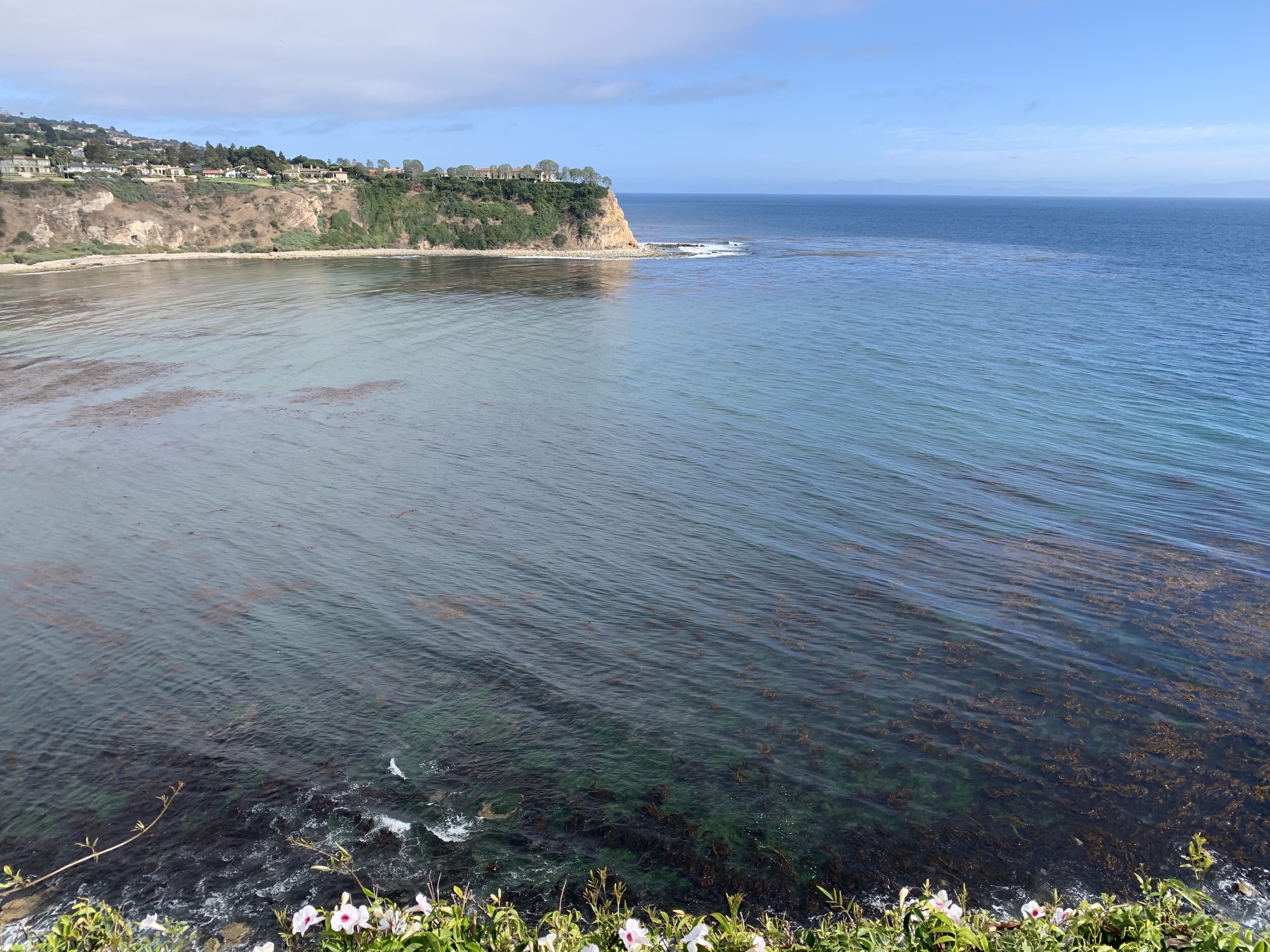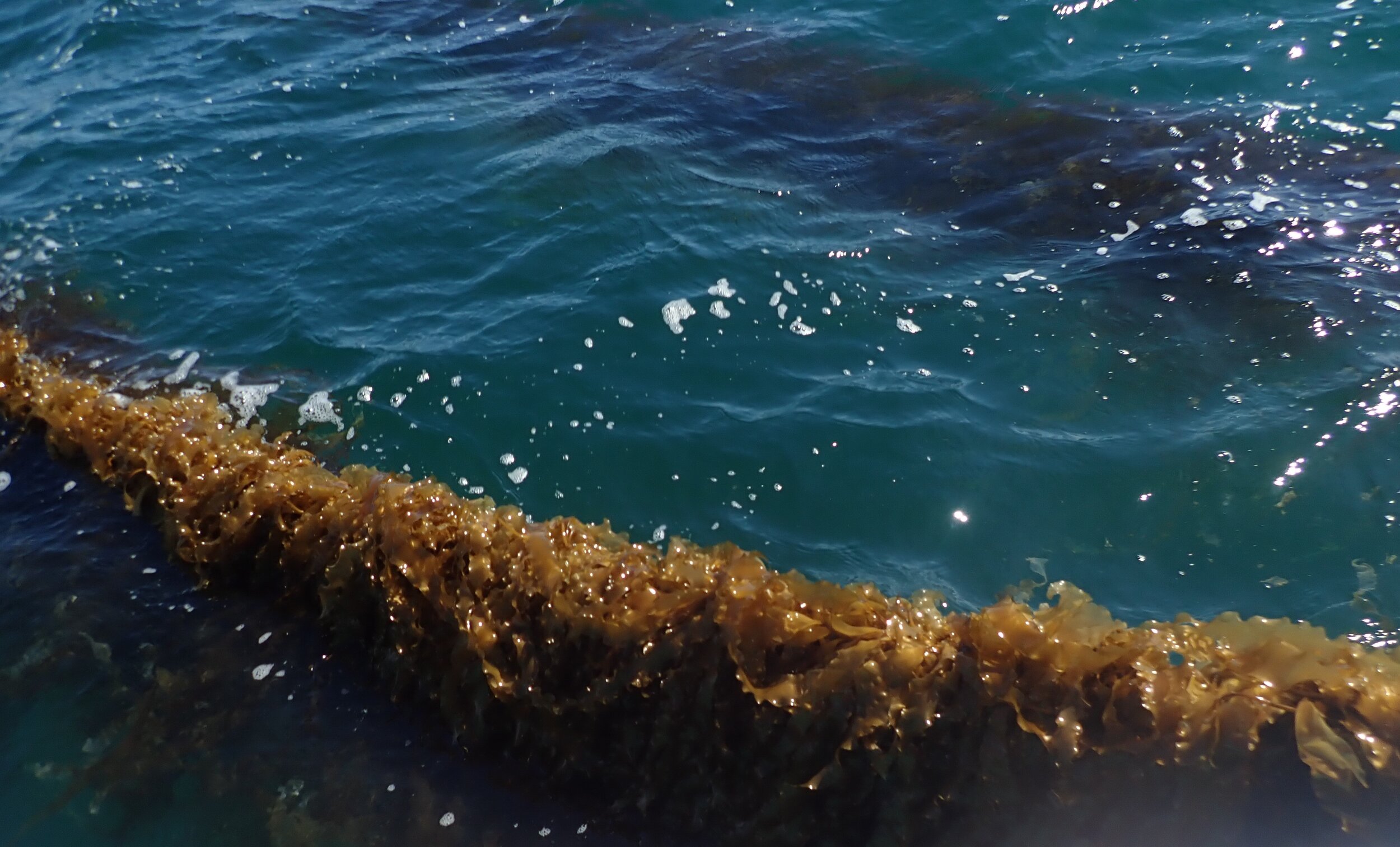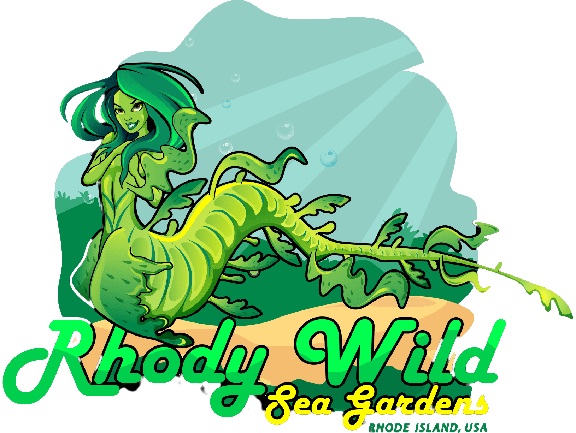
ABOUT KELP
What is sugar kelp?
Sugar kelp, or Saccharina latissima, is a brown marine algae native to Rhode Island waters. Like other marine algae, sugar kelp is not a plant and does not have roots, but rather a holdfast that stations it to the ground in the wild. As with all kelp, it is ecologically vital, being a primary producer and offers food and structure for other marine life.
What is ”sea gardening”?
Sugar kelp not only grows wild in Rhode Island, but it can be cultivated, or grown by people, through the practice of aquaculture or what we like to call “sea gardening”. Sugar kelp is unique to other cultured species in Rhode Island like shellfish, in that it is a winter-only crop, with planting happening in the fall and harvest in the spring. During these few months, sugar kelp can go from seedling to nearly 15 feet. Imagine if our backyard gardens grew that fast?!

What can kelp be used for?
Essentially everything you can think of, and more we haven’t even dreamed of yet!
Delicious & nutritious
Filled with essential micronutrients and vitamins, kelp is the perfect power food. There are local and regional companies making products ranging from kelp noodles to kelp burgers. Used in sushi, salads, and more recently in everything from granola bars to Sea-Chi (think kimchi with kelp), it’s a healthy, sustainable way to eat local and feel good.
Check out a few of these kelp-inspired recipes!
Kelp-based ingredients
Kelp and other marine algae are used in everything from toothpaste, shampoo, ice cream, and gummy bears! You’ll be surprised: Check out the ingredient list on products you buy every day. If you see “algin”, that is an emulsifying and bonding agent extracted from kelp.
Kelp as plastic alternatives
Companies are using kelp and turning it into plastic alternatives (i.e. straws, containers, drink pouches), a biodegradable, sustainable solution to our plastic waste crisis around the world. Check out Notpla and their innovative products as examples.
Rhody Wild is working to partner with researchers to test sugar kelp in these plastic alternative product forms.
Kelp as biofuel
Kelp is a viable source of renewable energy. Unlike other biofuels, it doesn't take pesticides or fertilizer to produce, and it's naturally fast-growing.
Feeding cattle & reducing methane
Recent research from the University of California, Davis shows that feeding cattle certain seaweed can reduce the amount of methane they produce (a greenhouse gas contributor) by more than 82 percent.
Carbon Capture & Sequestration
Kelp has enormous potential to capture and remove carbon from our earths system, helping to mitigate climate change. In fact, studies have shown that on a global scale, seaweeds can sequester nearly 200 million tonnes of CO2 every year, as much as the annual emissions of the state of New York. Kelp is also excellent at absorbing nutrients like nitrogen from the marine environment.
Check out the graphic to see how this works. (Figure by Hannah Zucker from ‘How Kelp Naturally Combats Global Climate Change’ Harvard University, July 4, 2019 Blog by Sylvia Hurlimann.)
How can I help?
Support Rhody Wild’s efforts to mitigate climate change, feed local animals healthy supplements, and create innovative bioplastic solutions by buying our kelp! We offer pre-season home delivery options to individuals businesses! With each order, you can also reserve your post-season kelp pieces for your garden!
We aim to work with current carbon pathways to minimize our carbon footprint. Contact us to learn more & how to get involved.









